
漢德百科全書 | 汉德百科全书
 Algeria
Algeria
 Egypt
Egypt
 Algeria
Algeria
 Demokratische Arabische Republik Sahara
Demokratische Arabische Republik Sahara
 Libya
Libya
 Mali
Mali
 Morocco
Morocco
 Mauritania
Mauritania
 Niger
Niger
 Republic of the Sudan
Republic of the Sudan
 Tschad
Tschad
 Tunisia
Tunisia
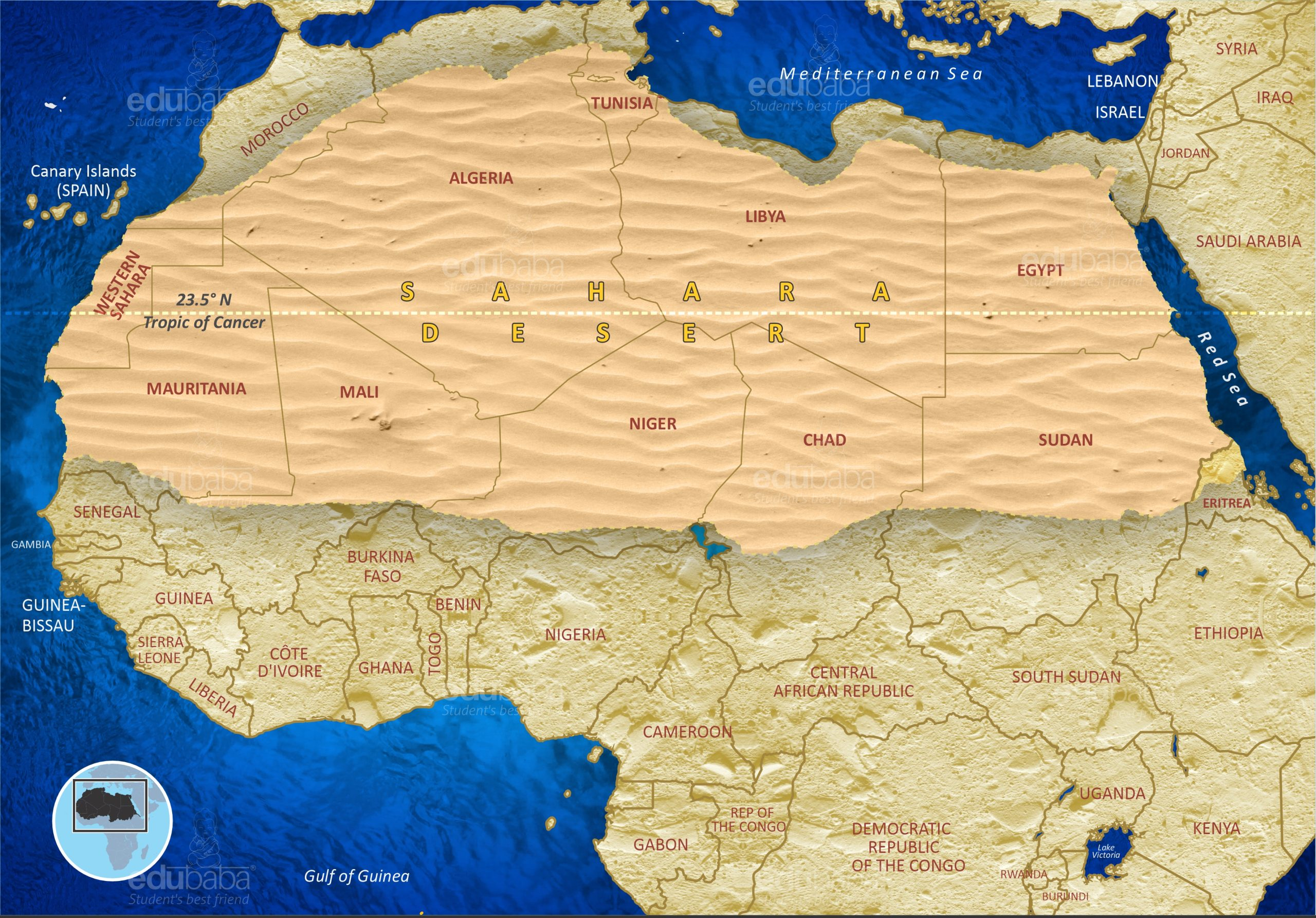
Die Sahara ist mit über neun Millionen Quadratkilometern die größte Trockenwüste der Erde. Das entspricht knapp der Fläche der gesamten USA oder etwa der 26-fachen Fläche Deutschlands. Sie erstreckt sich von der afrikanischen Atlantikküste bis zur Küste des Roten Meeres und bildet eine Fläche von 4500 bis 5500 Kilometern westöstlicher und 1500 bis 2000 Kilometern nordsüdlicher Ausdehnung. Sie wird aufgrund ihrer geographischen Lage zu den Wendekreiswüsten gezählt.
撒哈拉沙漠(阿拉伯语:الصحراء الكبرى,aṣ-Ṣaḥrāʾ al-Kubrā , 清朝直译大沙漠)是世界最热的荒漠,亦是世界第三大荒漠,仅次于南极和北极[1],同时也是世界上最大的沙漠,但并非世界最大的流动沙漠,其总面积超过9,400,000平方千米(3,600,000平方英里),与美国国土面积相当。撒哈拉沙漠东至红海(包括地中海海岸的一部分),西至大西洋,南部边界则为萨赫勒和撒哈拉以南非洲中部和西部的北端地区。撒哈拉沙漠中的一些沙丘高度可达180米(590英尺)[2]。“撒哈拉”为阿拉伯语中“沙漠”(صحارى ṣaḥārā [3][4] [ˈsˤɑħɑːrɑː])[5][6]一词的复数形式。



 Algeria
Algeria
 Angola
Angola
 Ecuador
Ecuador

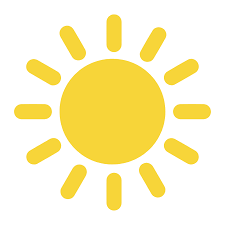 Energy resource
Energy resource

 Financial
Financial
 *Brazil economic data
*Brazil economic data

 Financial
Financial
 *China economic data
*China economic data

 Financial
Financial
 *Germany economic data
*Germany economic data

 Financial
Financial
 *European Union economic data
*European Union economic data

 Financial
Financial
 *France economic data
*France economic data

 Financial
Financial
 *India economic data
*India economic data

 Financial
Financial
 *Indonesia economic data
*Indonesia economic data

 Financial
Financial
 *Italy economic data
*Italy economic data

 Financial
Financial
 *Japan economic data
*Japan economic data

 Financial
Financial
 *Canada economic data
*Canada economic data

 Financial
Financial
 *United States economic data
*United States economic data

 Financial
Financial
 *United Kingdom economic data
*United Kingdom economic data

 Geography
Geography
 *World overview
*World overview

 Hand in Hand
Hand in Hand
 Iraq
Iraq
 Iran
Iran
 Kuwait
Kuwait
 Libya
Libya
 Nigeria
Nigeria
 OPEC
OPEC
 Republik Kongo
Republik Kongo
 Saudi Arabia
Saudi Arabia
 Venezuela
Venezuela
 United Arab Emirates
United Arab Emirates

 Important International Organizations
Important International Organizations

Die Organisation erdölexportierender Länder (kurz OPEC, von englisch Organization of the Petroleum Exporting Countries) ist eine 1960 gegründete internationale Organisation mit Sitz in Wien. Derzeit gehören dem Kartell fünfzehn Staaten an: Algerien, Angola, Ecuador, Äquatorialguinea, Gabun, Iran, Irak, die Republik Kongo, Kuwait, Libyen, Nigeria, Katar, Saudi-Arabien, die Vereinigten Arabischen Emirate und Venezuela.[1] Indonesien ist Ende 2016 ausgetreten.
Fünf OPEC-Mitglieder (Saudi-Arabien, Iran, Kuwait, Venezuela, Vereinigte Arabischen Emirate) gehören zu den zehn größten Erdölförderern der Welt. Insgesamt fördern die OPEC-Mitgliedstaaten ungefähr 40 Prozent der weltweiten Erdölproduktion und verfügen über drei Viertel der weltweiten Erdölreserven. Nachdem einige Nicht-OPEC-Staaten ihr Ölfördermaximum überschritten haben, wird erwartet, dass der Einfluss der OPEC steigt. Andererseits stellen manche Experten (z. B. Matthew Simmons) die Angaben zu den Reserven in Frage, etwa die Saudi-Arabiens.
石油输出国组织(英语:Organization of the Petroleum Exporting Countries,OPEC,发音为/ˈoʊpɛk/ OH-pek;简称欧佩克、油盟或油组)是由伊朗、伊拉克、科威特、沙特阿拉伯和委内瑞拉五国为共同应对由英美主导的七姊妹跨国石油公司,并且维护石油这一稳定收入,而于1960年在巴格达成立的一个政府间组织。总部自1965年以来设于奥地利维也纳,截至2018年2月拥有14个成员国。2016年,14个国家估计占全球石油产量的44%,占全球探明石油储量的73%。这使得欧佩克可以对全球原油价格产生重大影响。
石油输出国组织的既定使命是“协调统一成员国的石油政策与价格、确保石油市场的稳定,以确保为石油消费国有效、经济而稳定的石油供应,为产油国提供适度的尊重和稳定的收入,为投资于石油行业的资本提供公平的回报。”[2]该组织也是国际石油市场信息的重要提供者。截至2017年5月,石油输出国组织(欧佩克)的成员除了前加入的五个外还包括阿尔及利亚(1969年加入)、阿拉伯联合酋长国(1967年加入)、安哥拉(2007年加入)、厄瓜多尔(1973年加入,1992年退出,2007年再加入)、赤道几内亚(2017年加入)、加蓬(1975年加入,1995年初退出,2016年再加入)、利比亚(1962年加入)、尼日利亚(1971年加入)、卡塔尔(1961年加入,2019年1月退出)、刚果共和国(2018年加入),而印尼则是其前成员(1962年加入,2008年底退出,2016年1月重新加入,同年12月再度退出)。沙特阿拉伯是该组织事实上的(英语:De facto)领导者。三分之二的石油输出国组织的石油产储量位于围绕富油波斯湾的六个中东国家。
石油輸出国機構(せきゆゆしゅつこくきこう、英: Organization of the Petroleum Exporting Countries、略称:OPEC(日本語発音:オペックopec 、アメリカ英語発音:[ˈoʊpek] オウペク))は、国際石油資本などから石油産出国の利益を守ることを目的として、1960年9月14日に設立された組織である。設立当初は、イラン、イラク、クウェート、サウジアラビア、ベネズエラの5ヶ国を加盟国としていたものの、後に加盟国は増加し、2018年7月現在では15ヶ国が加盟している。世界最大のカルテルとされ、1970年代には石油の価格決定権を国際石油資本より奪い、2度のオイルショックを引き起こしたが、1986年からは石油価格の決定権は自由市場へと移ったこともあり、現在では価格統制力はそれほど強いものではない。なお、オーストリアは加盟国ではないものの、石油輸出国機構の本部は首都ウィーンに設置されている。
The Organization of the Petroleum Exporting Countries (OPEC, /ˈoʊpɛk/ OH-pek) is an intergovernmental organisation of 14 nations, founded in 1960 in Baghdad by the first five members (Iran, Iraq, Kuwait, Saudi Arabia, and Venezuela), and headquartered since 1965 in Vienna, Austria. As of September 2018, the then 15 member countries accounted for an estimated 44 percent of global oil production and 81.5 percent of the world's "proven" oil reserves, giving OPEC a major influence on global oil prices that were previously determined by the so called "Seven Sisters” grouping of multinational oil companies.
The stated mission of the organisation is to "coordinate and unify the petroleum policies of its member countries and ensure the stabilization of oil markets, in order to secure an efficient, economic and regular supply of petroleum to consumers, a steady income to producers, and a fair return on capital for those investing in the petroleum industry."[4] The organization is also a significant provider of information about the international oil market. The current OPEC members are the following: Algeria, Angola, Ecuador, Equatorial Guinea, Gabon, Iran, Iraq, Kuwait, Libya, Nigeria, the Republic of the Congo, Saudi Arabia (the de facto leader), United Arab Emirates, and Venezuela. Indonesia and Qatar are former members.
The formation of OPEC marked a turning point toward national sovereignty over natural resources, and OPEC decisions have come to play a prominent role in the global oil market and international relations. The effect can be particularly strong when wars or civil disorders lead to extended interruptions in supply. In the 1970s, restrictions in oil production led to a dramatic rise in oil prices and in the revenue and wealth of OPEC, with long-lasting and far-reaching consequences for the global economy. In the 1980s, OPEC began setting production targets for its member nations; generally, when the targets are reduced, oil prices increase. This has occurred most recently from the organization's 2008 and 2016 decisions to trim oversupply.
Economists often cite OPEC as a textbook example of a cartel that cooperates to reduce market competition, but one whose consultations are protected by the doctrine of state immunity under international law. In December 2014, "OPEC and the oil men" ranked as #3 on Lloyd's list of "the top 100 most influential people in the shipping industry".[5] However, the influence of OPEC on international trade is periodically challenged by the expansion of non-OPEC energy sources, and by the recurring temptation for individual OPEC countries to exceed production targets and pursue conflicting self-interests.
L'Organisation des pays exportateurs de pétrole (OPEP) (en anglais Organization of Petroleum Exporting Countries (OPEC)), est une organisation intergouvernementale (un cartel) de pays visant à négocier avec les sociétés pétrolières pour tout ce qui touche à la production de pétrole, son prix et les futurs droits de concession1. Depuis le 1er août 2016, le secrétaire général de l'OPEP est l'ancien patron de la compagnie nationale des hydrocarbures du Nigeria (NNPC) Mohammed Barkindo2.
L'Organizzazione dei Paesi esportatori di petrolio, meglio conosciuta come OPEC (Organization of the Petroleum Exporting Countries), fondata nel 1960, comprende dodici Paesi che si sono associati, formando un cartello economico, per negoziare con le compagnie petrolifere aspetti relativi alla produzione di petrolio, prezzi e concessioni. La sede dell'OPEC, dapprima stabilita a Ginevra, a partire dal 1º settembre 1965 è stata trasferita a Vienna.
Gli stati membri OPEC controllano circa il 78% delle riserve mondiali accertate di petrolio, il 50% di quelle di gas naturale e forniscono circa il 42% della produzione mondiale di petrolio ed il 17% di quella di gas naturale.[1] L'organizzazione parallela dell'OAPEC (Organizzazione dei Paesi Arabi Esportatori di Petrolio), fondata nel 1968 nel Kuwait, si occupa del coordinamento delle politiche energetiche dei paesi Arabi che fanno parte dell'OPEC.
La Organización de Países Exportadores de Petróleo (OPEP) es un organismo internacional fundado en Bagdad, Irak, en 1960. Actualmente lo conforman 15 países, de los cuales 5 son miembros fundadores (Arabia Saudita, Kuwait, Irán, Irak y Venezuela). Desde 1965 tiene sede en Viena, Austria. Constituido a iniciativa del Gobierno de Venezuela, presidido por Rómulo Betancourt, y el entonces presidente de Irak, Muhammad Najib ar-Ruba'i, en respuesta a la concentración de poder político y económico de los Estados Unidos como principal productor y consumidor de petróleo del mundo en el período de posguerra.
La OPEP "puede tener una gran influencia en el mercado de petróleo, especialmente si decide reducir o aumentar su nivel de producción".1 El 43% de la producción mundial de petróleo y el 81% de las reservas mundiales de petróleo se encuentran en países miembros de la OPEP.2 Su dominio en las exportaciones de crudo, para el tercer trimestre del año 2016, se sitúa en alrededor del 34,9%.3 Además, concentra la totalidad de la capacidad necesaria de producción de petróleo del mundo, lo que, de facto, convierte a la Organización de países exportadores de petróleo en el banco central del mercado petrolero.
La cuota de mercado de la organización aumentará en el futuro, ya que la Agencia Internacional de la Energía prevé que la producción de petróleo convencional de los países que no forman parte de la OPEP alcanzará su máximo alrededor de 2015.
La OPEP es una organización reconocida desde el 6 de noviembre de 1962 por la Organización de las Naciones Unidas (ONU), gracias a la resolución número 6.363.[cita requerida] La OPEP tuvo su sede en Ginebra (Suiza) entre 1960 y 1965, y después trasladó su sede a Viena, gracias a las facilidades que otorgó el gobierno austríaco.
Los estatutos de la OPEP establecen que su objetivo es coordinar y unificar las políticas petroleras entre los países miembros, con el fin de garantizar unos precios justos y estables para los productores de petróleo, el abastecimiento eficiente, económico y regular de petróleo a los países consumidores y un rendimiento justo del capital de los inversores.
Los países miembros lograron un significativo aumento del precio del petróleo, sobre todo en los años 1973, 1974 y 1979, y una mayor participación y control sobre la explotación realizada en sus territorios.
La OPEP vivió su primera ampliación en 30 años en enero de 2007 cuando Angola se convirtió de forma oficial en el duodécimo socio del grupo, tras pedir su ingreso en la reunión de la OPEP en Abuya (Nigeria) de diciembre de 2006 y haber sondeado al grupo en la reunión de Caracas (Venezuela) de ese mismo año.
A comienzos del año 2007 el gobierno de Ecuador anunció la posibilidad de regresar a la organización,4 hecho que se materializó finalmente en noviembre de ese mismo año.
Posteriormente, Indonesia suspendió su membresía nuevamente en 2016,5 luego de dos años de haber reingresado a la organización, tras su salida en 2008.
Recientemente, Gabón reingresó a la organización en el año 2016, luego de haber suspendido su membresía en el año 1995; mientras que Guinea Ecuatorial se unió por primera vez a la organización en mayo de 2017.6
Catar, uno de los productores de crudo más pequeños dentro de la Organización, ha anunciado su retiro del organismo para enero de 2019. Así lo dio a conocer su ministro de energía, Saad Sherida al-Kaabi, durante una rueda de prensa el lunes 3 de diciembre de 2018.7
Otros países productores de petróleo, aunque no son integrantes de la OPEP, como Sudán, México, Noruega, Rusia, Kazajistán, Omán y Egipto, participan regularmente como observadores en las reuniones ordinarias del grupo.
Организа́ция стран — экспортёров не́фти (англ. The Organization of the Petroleum Exporting Countries; сокращённо ОПЕ́К, англ. OPEC) — международная межправительственная организация, созданная нефтедобывающими странами в целях контроля квот добычи на нефть. Часто рассматривается как картель. В состав ОПЕК входят 15 стран[4]: Алжир, Ангола, Венесуэла, Габон, Иран, Ирак, Конго, Кувейт, Катар (с января 2019 выходит из альянса), Ливия, Объединённые Арабские Эмираты, Нигерия, Саудовская Аравия, Экваториальная Гвинея и Эквадор. Штаб-квартира расположена в Вене. Генеральный секретарь (с 01 августа 2016 г.) — Мохаммед Баркиндо.[5]
Страны члены ОПЕК контролируют около 2/3 мировых запасов нефти. На их долю приходится ~35 % от всемирной добычи или половина мирового экспорта нефти. Доказанные запасы нефти стран, входящих в ОПЕК, в настоящее время составляют 1199,71 миллиарда баррелей.
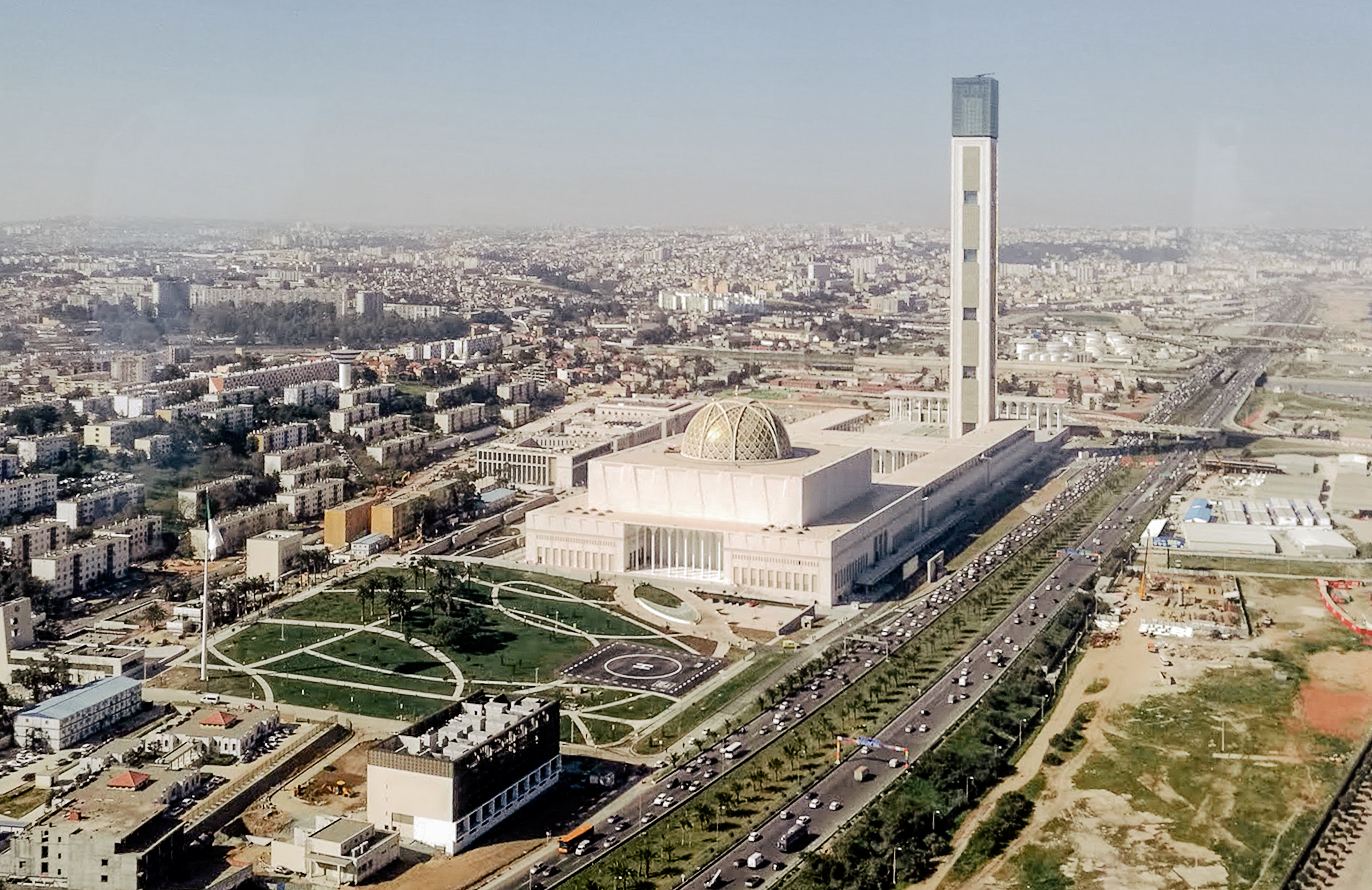
Die Große Moschee von Algier (GMA, arabisch مسجد الجزائر الأعظم, französisch Djamaâ el Djazaïr) ist eine im Jahr 2019 fertiggestellte Moschee in der algerischen Hauptstadt Algier. Die Moschee gehört zu den größten der Welt und übertrifft die Hassan-II.-Moschee im Nachbarland Marokko deutlich. Ihr 265 m hohes Minarett ist das höchste der Welt.[1] Die Fertigstellung war zunächst für das Jahr 2015 geplant.
In Algerien selbst gilt sie vielen Gläubigen als Prestigeprojekt von Abd al-Aziz Bouteflika, dem von 1999 bis 2019 amtierenden Präsidenten, der damit von sozialen und politischen Problemen des Landes ablenken wolle.[2] Der Bau wurde durch die Volksrepublik China finanziell unterstützt.
新阿尔及尔大清真寺(阿拉伯语:جامع الجزائر、法语:Grande mosquée d'Alger),是阿尔及利亚首都阿尔及尔的一所清真寺。
清真寺位于市中心东南方,占地400,000平方米,耗资15亿美元。[1]由中国建筑工程总公司、KSP尤根.恩格尔建筑师事务所、[2]Krebs und Kiefer、[3]德索工程、索科特克集团、爱集思负责设计,并由中建阿尔及利亚公司和中建三局三公司联合建造。[4]
清真寺在2011年10月30日由阿尔及利亚总统阿卜杜勒-阿齐兹·布特弗利卡主持奠基,[5]宣礼塔于2017年3月11日封顶。[6]
清真寺设有一座265米、设有博物馆和研究中心的宣礼塔,将会是非洲最高的建筑物。大殿可容纳37,000人聚礼,穹顶直径50米、高75米。清真寺中央广场的周围还附设一所文化中心、宗教学校、图书馆、消防站以及住宅大楼。日接持客量达12万人次。

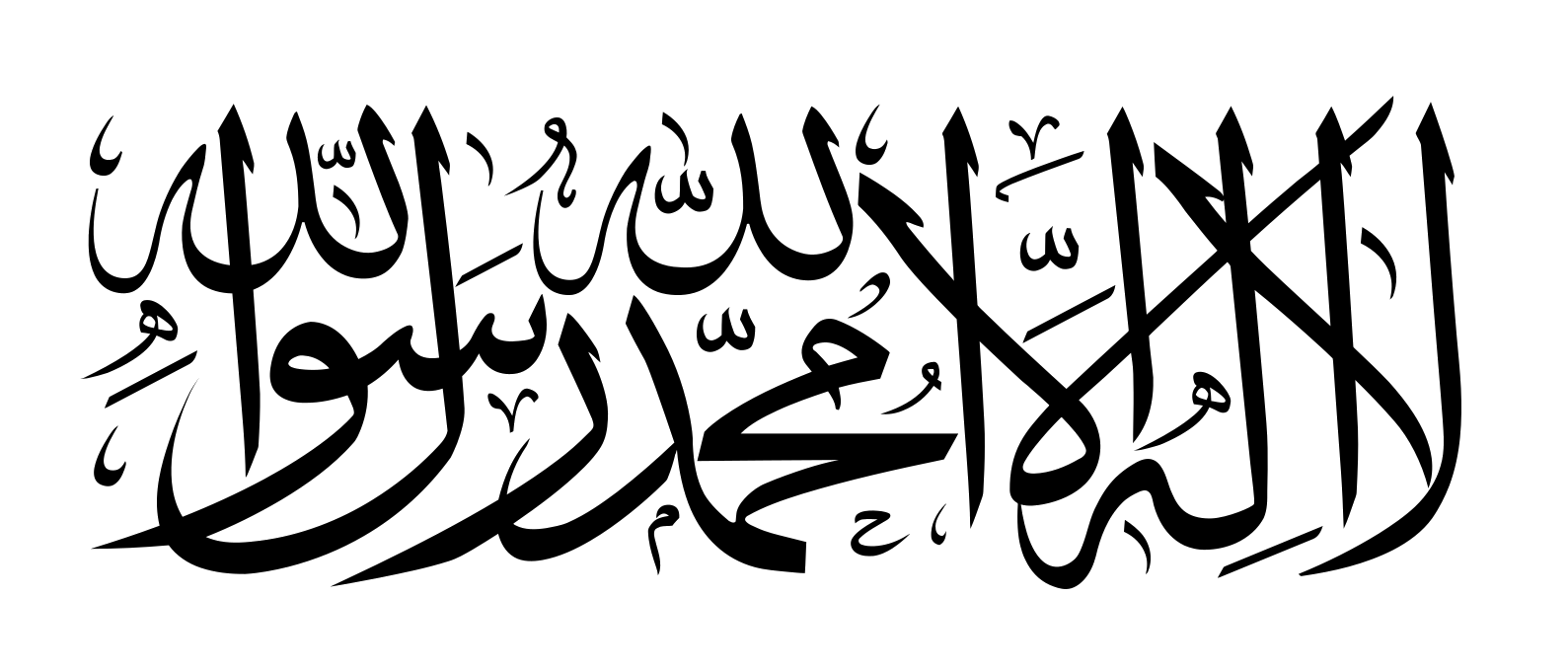 Afghanistan
Afghanistan
 Egypt
Egypt
 Algeria
Algeria

 History
History
 K 500 - 1000 AD
K 500 - 1000 AD
 Iraq
Iraq
 Iran
Iran
 Yemen
Yemen
 Jordan
Jordan
 Katar
Katar
 Comoros
Comoros
 Libanon
Libanon
 Libya
Libya
 Malediven
Malediven
 Morocco
Morocco
 Pakistan
Pakistan

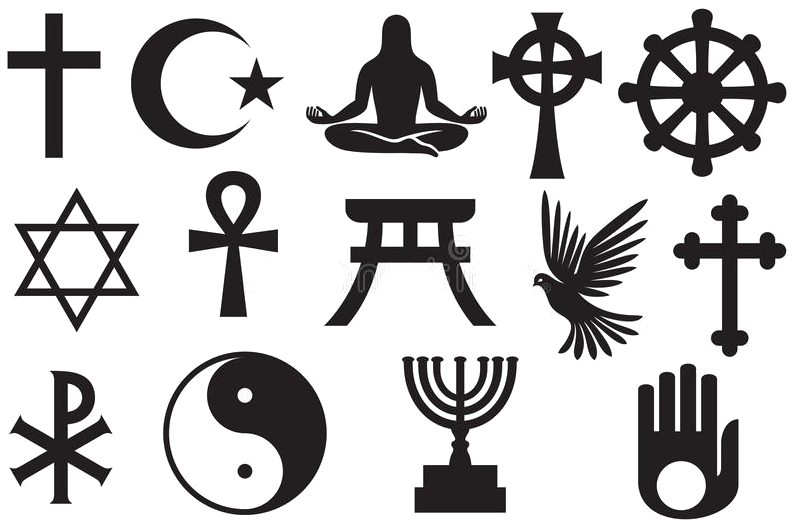 Religion
Religion
 Islam
Islam
 Republic of the Sudan
Republic of the Sudan
 Saudi Arabia
Saudi Arabia
 Somalia
Somalia
 Syria
Syria
 Tajikistan
Tajikistan
 Tunisia
Tunisia
 Turkey
Turkey
 Uzbekistan
Uzbekistan

Verteilung muslimischer Glaubensrichtungen: Grün: sunnitische Gebiete; Rot: schiitische Gebiete; Blau: Ibaditen (Oman)
Die Sunniten bilden die größte Glaubensgruppe im Islam. Ihre Glaubensrichtung selbst wird als Sunnitentum oder Sunnismus bezeichnet. Die Bezeichnung ist von dem arabischen Wort Sunna (‚Brauch, Handlungsweise, überlieferte Norm, Tradition‘) abgeleitet. Diejenigen, die der sunnat an-nabī, der „Sunna des Propheten“ (sc. Mohammed), folgen, werden im Arabischen als ahl as-sunna („Leute der Sunna“) und im Türkischen als Ehl-i Sünnet bezeichnet, was im Deutschen üblicherweise als „Sunniten“ wiedergegeben wird. Neben ahl as-sunna wird im Arabischen auch der erweiterte Ausdruck ahl as-sunna wal-dschamāʿa (arabisch أهل السنة والجماعة, DMG ahl as-sunna wal-ǧamāʿa ‚Leute der Sunna und der Gemeinschaft‘) verwendet. Die Glaubenslehren der Sunniten werden in verschiedenen Glaubensbekenntnissen dargestellt, die sich je nach dogmatischer Ausrichtung der Autoren unterscheiden.
Heute gelten die Schiiten als die wichtigste Gegengruppe zu den Sunniten, allerdings hat sich das sunnitische Selbstbewusstsein im Mittelalter nicht nur in Absetzung zu den Schiiten, sondern auch zu den Charidschiten, Qadariten und Murdschi'iten herausgebildet. Über die Frage, welche dogmatischen Lehrrichtungen dem Sunnitentum angehören, besteht unter den muslimischen Gelehrten keine Einigkeit. Eine der wenigen internationalen Initiativen zur Klärung der sunnitischen Identität war die Sunnitenkonferenz von Grosny im August 2016. Auf ihr wurden die Takfīrī-Salafisten und andere extremistische Gruppen wie der Islamische Staat aus dem sunnitischen Islam ausgeschlossen.[1]
逊尼派(阿拉伯语:أهل السنة والجماعة,ʾAhl ūs-Sunnah wa āl-Ǧamāʿah,简称أهل السنة ʾAhl ūs-Sunnah),又译素尼派,原意为遵循圣训者,为伊斯兰教中的最大派别,自称“正统派”,与什叶派对立。一般认为,全世界大约有85~91%穆斯林隶属此派别[1][2][3]。
スンナ派(アラビア語:(أهل السنة (والجماعة 、ラテン文字転写:Ahl as-Sunnah (wa’l-Jamā‘ah))、あるいはスンニ派(日本では報道などでこちらが一般的に知られる)は、イスラム教(イスラーム)の二大宗派のひとつとされる。他のひとつはシーア派である。イスラームの各宗派間では、最大の勢力、多数派を形成する。
Sunni Islam (/ˈsuːni, ˈsʊni/) is the largest denomination of Islam, followed by 87–90% of the world's Muslims, characterized by a greater emphasis upon the prophet, the sahabah (in particular the Rashidun), and customs deduced thereof.[1][2] Its name comes from the word sunnah, referring to the behaviour of the Islamic prophet Muhammad.[3] The differences between Sunni and Shia Muslims arose from a disagreement over the succession to Muhammad and subsequently acquired broader political significance, as well as theological and juridical dimensions.[4]
According to Sunni traditions, Muhammad did not clearly designate a successor and the Muslim community acted according to his sunnah in electing his father-in-law Abu Bakr as the first caliph.[4] This contrasts with the Shia view, which holds that Muhammad announced his son-in-law and cousin Ali ibn Abi Talib as his successor, most notably at Ghadir Khumm.[5][6][7][8][9] Political tensions between Sunnis and Shias continued with varying intensity throughout Islamic history and have been exacerbated in recent times by ethnic conflicts and the rise of Wahhabism.[4]
The adherents of Sunni Islam are referred to in Arabic as ahl as-sunnah wa l-jamāʻah ("the people of the sunnah and the community") or ahl as-sunnah for short.[10][11] In English, its doctrines and practices are sometimes called Sunnism,[12] while adherents are known as Sunni Muslims, Sunnis, Sunnites and Ahlus Sunnah. Sunni Islam is sometimes referred to as "orthodox Islam",[13][14][15] though some scholars view this translation as inappropriate.[16]
The Quran, together with hadith (especially those collected in Kutub al-Sittah) and binding juristic consensus, form the basis of all traditional jurisprudence within Sunni Islam. Sharia rulings are derived from these basic sources, in conjunction with analogical reasoning, consideration of public welfare and juristic discretion, using the principles of jurisprudence developed by the traditional legal schools. In matters of creed, the Sunni tradition upholds the six pillars of iman (faith) and comprises the Ash'ari and Maturidi schools of rationalistic theology as well as the textualist school known as traditionalist theology. Sunni Islam is not a coherent line of tradition, but a consolidation of doctrines and positions worked out over time in discussions and writings.[17]
Le sunnisme1 est le principal courant religieux de l'islam représentant 90 % des musulmans du monde2. Constituant l'un des trois grands courants de l'islam avec le chiisme et le kharidjisme, le sunnisme se distingue des autres courants de l'islam par son interprétation de la religion. Les sunnites sont désignés en arabe comme les gens de la « sunna » et de la majorité religieuse (ahl al-sunna wa'l-djama‘a). Par opposition aux chiites et aux kharidjites, on les appelle parfois « musulmans orthodoxes »3.
Il sunnismo (in arabo: أهل السنة والجماعة, ahl al-sunna wa l-jamāʿa[1], "il popolo della Sunna e della Comunità") è la corrente maggioritaria dell'Islam, comprendendo circa l'85% dell'intero mondo islamico[2]. Essa riconosce la validità della Sunna (consuetudine[3], identificata coi Sei libri) e si ritiene erede della giusta interpretazione del Corano[1], articolata giuridicamente in 4 scuole o madhhab. Queste si dividono in Hanafismo, Malikismo, Sciafeismo, Hanbalismo. Mentre il cristianesimo è la maggiore religione del mondo (con 2,1 miliardi di aderenti) e l'Islam la seconda (con 1,8 miliardi), come confessioni il sunnismo (1,6 miliardi) supera il cattolicesimo (1,2 miliardi). Nell'islam, oltre al sunnismo, le principali confessioni sono rappresentate dallo Sciismo e dal Kharigismo. Sono presenti inoltre numerose forme minori (vedi denominazioni islamiche).
Nel sunnismo, così come nelle altre confessioni islamiche, ci sono divisioni interne tra i credenti sufi e coloro che rifiutano l'approccio sufico.
Los suníes1(en idioma árabe, سنّة) ʾAhlu-s-Sunnati wa-l-Jamāʿah (en árabe, أهل السنة والجماعة) son el grupo musulmán mayoritario en la comunidad islámica mundial. Su nombre procede del hecho de que, además del Corán, son devotos de la Sunna, colección de dichos y hechos atribuidos al profeta Mahoma. Aunque el Islam sunita se compone de una variedad de escuelas teológicas y legales que se desarrollaron a través de entornos históricos, localidades y culturas, los sunitas de todo el mundo comparten algunas creencias comunes: la aceptación de la legitimidad de los primeros cuatro sucesores del profeta Mahoma (Abu Bakr, Omar , Uthman y Ali), y la creencia de que otras sectas islámicas han introducido innovaciones (bidah), partiendo de la creencia mayoritaria.
Sunni Islam se desarrolló a partir de las luchas en el Islam temprano sobre el liderazgo. Las posiciones políticas y religiosas surgieron de las disputas sobre la definición de la creencia "verdadera", la libertad y el determinismo. Los sunitas tienden a rechazar el racionalismo excesivo o el intelectualismo en cuestiones de credo, centrándose en el espíritu y la intención de las fuentes primarias y utilizando argumentos racionales, cuando sea necesario, para defender la ortodoxia y refutar la herejía.23
Сунни́ты, ахль ас-су́нна ва-ль-джама‘а (от араб. أهل السنة والجماعة — «люди сунны и согласия общины») — последователи основного и наиболее многочисленного направления в исламе.

 Afghanistan
Afghanistan
 Egypt
Egypt
 Albania
Albania
 Algeria
Algeria
 Azerbaijan
Azerbaijan
 Bahrain
Bahrain
 Bangladesh
Bangladesh
 Benin
Benin
 Brunei Darussalam
Brunei Darussalam
 Burkina Faso
Burkina Faso
 Côte d´Ivoire
Côte d´Ivoire
 Djibouti
Djibouti
 Gabun
Gabun
 Gambia
Gambia
 Guinea
Guinea
 Guinea-Bissau
Guinea-Bissau
 Guyana
Guyana
 Indonesia
Indonesia
 Iraq
Iraq
 Iran
Iran
 Yemen
Yemen
 Jordan
Jordan
 Cameroon
Cameroon
 Kasachstan
Kasachstan
 Katar
Katar
 Kyrgyzstan
Kyrgyzstan
 Comoros
Comoros
 Kuwait
Kuwait
 Libanon
Libanon
 Libya
Libya
 Malaysia
Malaysia
 Malediven
Malediven
 Mali
Mali
 Morocco
Morocco
 Mauritania
Mauritania
 Mosambik
Mosambik
 Niger
Niger
 Nigeria
Nigeria
 Oman
Oman
 Pakistan
Pakistan
 Palestine
Palestine
 Republic of the Sudan
Republic of the Sudan
 Saudi Arabia
Saudi Arabia
 Senegal
Senegal
 Sierra Leone
Sierra Leone
 Somalia
Somalia
 Suriname
Suriname
 Syria
Syria
 Tajikistan
Tajikistan
 Togo
Togo
 Tschad
Tschad
 Tunisia
Tunisia
 Turkey
Turkey
 Turkmenistan
Turkmenistan
 Uganda
Uganda
 Uzbekistan
Uzbekistan
 United Arab Emirates
United Arab Emirates

 Important International Organizations
Important International Organizations
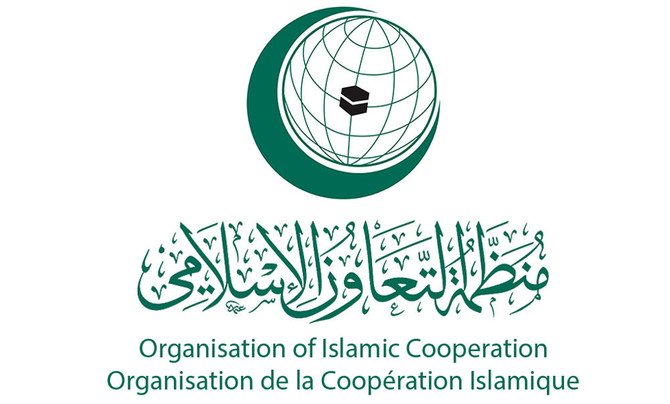
伊斯兰合作组织(阿拉伯语:منظمة التعاون الإسلامي;英语:Organisation of Islamic Cooperation;法语:Organisation de la coopération islamique)原名伊斯兰会议组织,是一个伊斯兰世界的政府间国际组织,为联合国大会观察员;该组织由遍及西亚(中东)、中亚、西非、北非、印度次大陆和东南亚的57个国家组成,覆盖的人口约为16亿。秘书处设在沙特阿拉伯王国的吉达市;现任秘书长是原沙特社会事务大臣Yousef Al-Othaimeen(从2016年开始)。
组织的宗旨是促进各成员国之间在经济、社会、文化和科学等方面的合作;努力消除种族隔离和种族歧视,反对一切形式的殖民主义;支持巴勒斯坦人民恢复民族权利和重返家园的斗争;支持穆斯林保障其尊严、独立和民族权利的斗争。
但要注意的是并非每个成员国是伊斯兰国家,如圭亚那、苏里南、莫桑比克、喀麦隆、乌干达和加蓬等国,伊斯兰反而是极少数人的信仰,阿尔巴尼亚则是唯一加入该组织的欧洲大陆的主权国家和联合国会员国,2011年脱离苏丹独立的南苏丹也在独立后脱离该组织的势力范围。
イスラム協力機構(イスラムきょうりょくきこう、アラビア語: منظمة التعاون الاسلامي、略称OIC; 英語: Organisation of Islamic Cooperation、略称OCI; フランス語: Organisation de la coopération Islamique)は、イスラム諸国をメンバーとして構成され、国際連合に対する常任代表を有する国際機構。公用語はアラビア語、英語、フランス語。かつてはイスラム諸国会議機構(منظمة المؤتمر الإسلامي、英語: Organisation of the Islamic Conference、フランス語: Organisation de la Conférence Islamique)という名称であったが、2011年6月にカザフスタンのアスタナでの会議で「イスラム協力機構」への変更と紋章が決定された[1]。
イスラム諸国の政治的協力、連帯を強化すること、イスラム諸国に対する抑圧に反対し、解放運動を支援することを目的とする。
加盟国はムスリム(イスラム教徒)が国民の多数を占める西アジア、北アフリカ、西アフリカ、東アフリカ、中央アジア、南アジア、東南アジアなどの57か国、オブザーバーが5ヵ国・8組織(国連など)からなり、世界13億人のムスリムの大部分を代表する。
加盟条件としては、国内でムスリムが大多数を占めることを必ずしも条件としているわけではなく、南アメリカのいくつかの国のようにマイノリティとしてある程度のムスリム人口を抱えているだけであっても、外相会議における審査で承認されればイスラム諸国のひとつとして機構に加盟することができる。イスラム教徒が多数派を占める国はほとんど参加しているが、イスラム教徒比率の高い国のうちエチオピア(30~50%)とタンザニア(約30%)が加盟していない。イスラム教徒人口の多い国で言えばインド(約1億5000万人)や中国(約2000万人)も加盟していない。逆にイスラム教徒比率の低い国ではガボン、ウガンダ、スリナム、ガイアナなどが加盟している(それぞれ10%未満)。
The Organisation of Islamic Cooperation (OIC; Arabic: منظمة التعاون الإسلامي; French: Organisation de la coopération islamique), formerly the Organisation of the Islamic Conference, is an international organization founded in 1969, consisting of 57 member states, with a collective population of over 1.8 billion as of 2015 with 53 countries being Muslim-majority countries. The organisation states that it is "the collective voice of the Muslim world" and works to "safeguard and protect the interests of the Muslim world in the spirit of promoting international peace and harmony".[1]
The OIC has permanent delegations to the United Nations and the European Union. The official languages of the OIC are Arabic, English, and French.
L’Organisation de la coopération islamique (OCI), en arabe : منظمة التعاون الإسلامي (Munaẓẓamat at-Taʿāwun al-islāmī), en anglais : Organisation of Islamic Cooperation (OIC), appelée jusqu'en 2011 Organisation de la conférence islamique (en arabe : منظمة المؤتمر الإسلامي, en anglais : Organisation of the Islamic Conference), est une organisation intergouvernementale créée le 25 septembre 1969. Son siège se situe à Djeddah en Arabie saoudite et elle possède une délégation permanente aux Nations unies.
Regroupant 57 États membres, sa vocation est de promouvoir la coopération dans les domaines économiques, sociaux, culturels et scientifiques (grâce notamment à la Banque islamique de développement), mais aussi la sauvegarde des lieux saints de l'islam ou encore le soutien au peuple palestinien. À l'échelle mondiale, il n'existe pas d'autre organisation confessionnelle dont les membres signataires soient des États.
Ses trois langues officielles sont l'arabe, l'anglais et le français2.
L'Organizzazione della cooperazione islamica (in arabo: منظمة التعاون الإسلامي, Munaẓẓamat al-taʿāwun al-islāmī; in inglese: Organization of the Islamic Cooperation, OIC; in francese: Organisation de la coopération islamique, OCI) è un'organizzazione internazionale con una delegazione permanente presso le Nazioni Unite. Rappresenta 56 Stati dell'Europa, Vicino Oriente, Medio Oriente, America meridionale, Africa, Asia centrale e del Subcontinente indiano.[1]
L'organizzazione, fondata a Rabat, in Marocco, il 25 settembre 1969 con il nome Organisation of the Islamic Conference, in arabo: منظمة المؤتمر الإسلامي, Munaẓẓamat al-muʾtamar al-islāmī; (FR) Organisation de la conférence islamique, mutato nell'attuale nel 2011.[2]
Ha come finalità la salvaguardia degli interessi e lo sviluppo delle popolazioni musulmane nel mondo.
Il 10 ottobre 1975 le è stato riconosciuto lo status di osservatore dell'Assemblea generale delle Nazioni Unite.
La Organización para la Cooperación Islámica (Árabe:منظمة التعاون الاسلامي); (Francés: Organisation de la Coopération Islamique); (Inglés: Organisation of Islamic Cooperation) es un organismo internacional que agrupa a los estados de confesión musulmana, creado en 1969 durante la Conferencia de Rabat y formalizada dos años después.
Su sede está en Yidda, ciudad costera de Arabia Saudí a orillas del Mar Rojo. Sus miembros son países con mayoría de población musulmana o con una comunidad significativa en ellos, con Estados miembros y observadores de África, Asia, Europa y América del Sur. El 28 de junio de 2011 se oficializó el cambio de nombre,1 anteriormente se llamó: Organización de la Conferencia Islámica (Árabe:منظمة المؤتمر الإسلامي); (Francés: Organisation de la Conférence Islamique); (Inglés:Organization of the Islamic Conference).
Sus acciones se circunscriben a la actividad colaborativa entre sus miembros, sobre todo en la lucha contra el imperialismo, el neocolonialismo y por la emancipación de Palestina. Históricamente se celebraron diversos congresos que contribuyeron con su desarrollo: Lahore (1974), La Meca (1981), Casablanca (1984), Kuwait (1987), Dakar (1991). Sus repercusiones son menores que las de la Liga Árabe.
Организация исламского сотрудничества (англ. Organisation of Islamic Cooperation (OIC), араб. منظمة التعاون الاسلامي) — международная организация исламских стран (до 2011 года называлась Организация Исламская конференция (ОИК).
 Egypt
Egypt
 Algeria
Algeria
 Indonesia
Indonesia
 Iran
Iran
 Kuwait
Kuwait
 Libya
Libya
 Pakistan
Pakistan
 Saudi Arabia
Saudi Arabia
 Turkey
Turkey
 United Arab Emirates
United Arab Emirates

 Important International Organizations
Important International Organizations
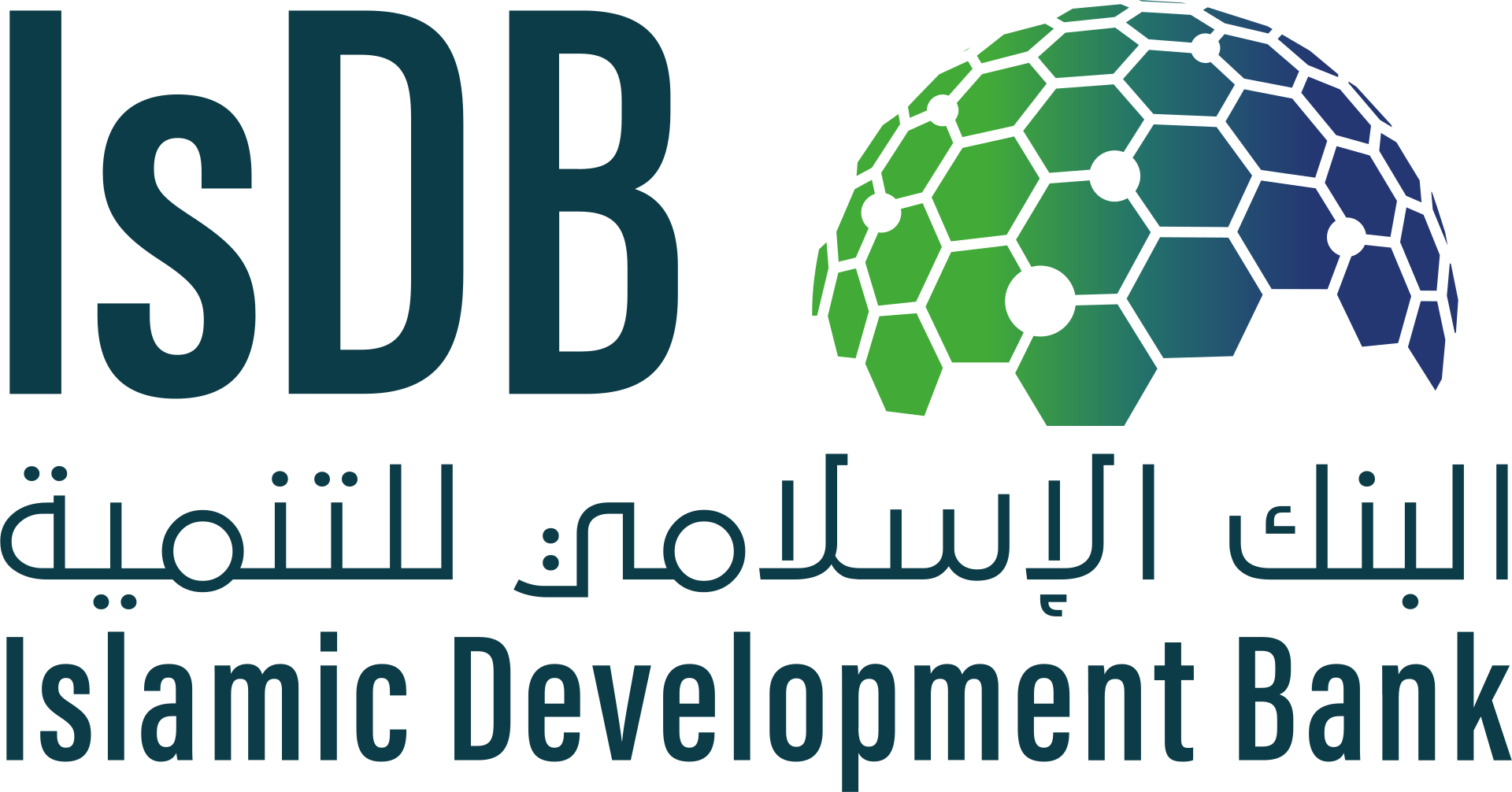
 Sport
Sport
 Economy and trade
Economy and trade
 Architecture
Architecture